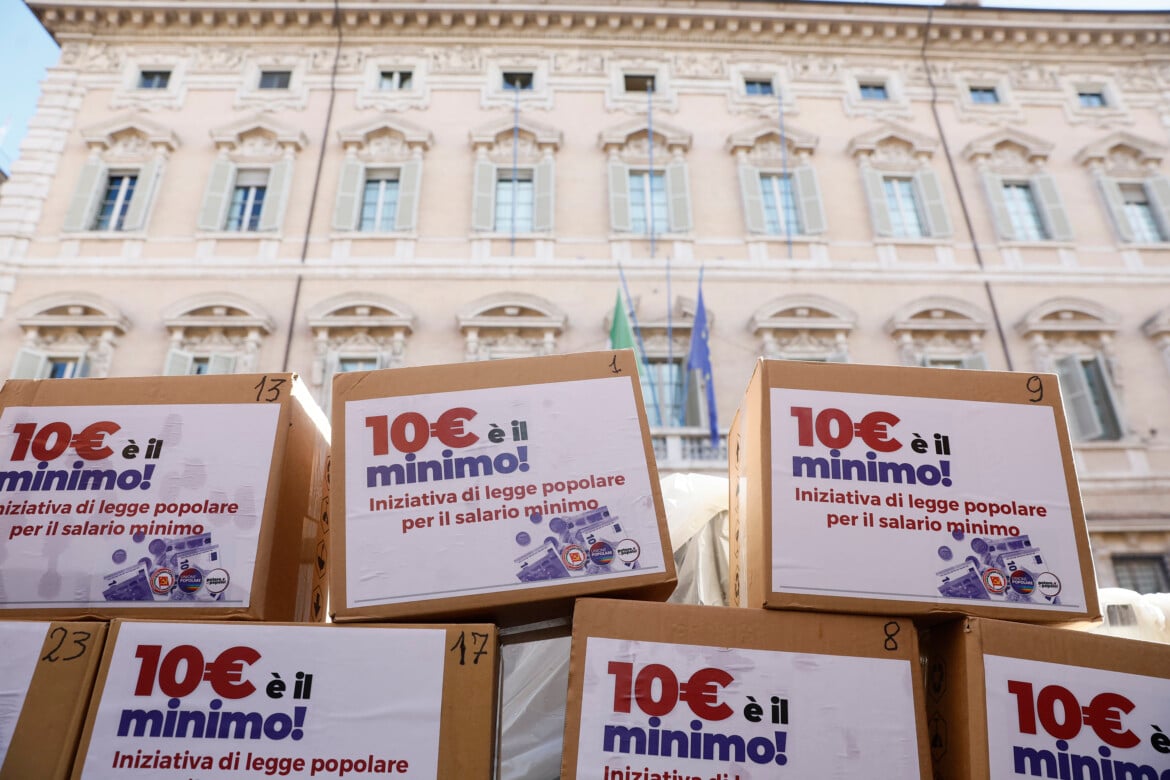Analysis
EU court upholds minimum wage directive, with caveats
The court struck down the provision listing the criteria that member states must take into account when setting and updating statutory minimum wages.

In a ruling with significant implications for wages across the continent, the European Court of Justice (ECJ) on Tuesday upheld a large part of the EU's minimum wage directive, rejecting a legal challenge by Sweden and Denmark that had argued it was excessive EU interference into national matters.
However, while finding that the directive was broadly consistent with EU treaties and maintained most protections for collective bargaining, the court struck down the provision listing the criteria that member states must take into account when setting and updating statutory minimum wages, as well as the rule preventing the reduction of such wages in the event of automatic indexation.
“The annulment of these measures is not helpful for future efforts to protect fair wages,” The Left group in the European Parliament said, reflecting a twofold concern. The ECJ has weakened the already uncertain ability of EU legislation to compel national governments to adopt a minimum wage and to update it. Also, the Court ruled out a mechanism for minimum wages to automatically catch up with inflation where they are in force. Governments usually make such decisions, theoretically in consultation with “social partners.” However, this weakening of the directive will not help those who support wage indexation, especially at a time of severe wage compression while untaxed profits boom across Europe.
The ECJ's decision “strengthens the European social model, based on fair and adequate wages and strong collective bargaining,” said EU Commission President Ursula von der Leyen. “Because it brings both social equity and economic benefits. This is good news for workers, especially those on low wages, and for employers across Europe who pay fair wages,” and represents “a milestone.”
Von der Leyen's statement, however, has the ring of mere formality and fails to reflect reality. Across Europe, wages have lost purchasing power due to profit-driven inflation, and collective bargaining is suffering from a severe crisis. Not to mention Italy, where a minimum wage doesn't even exist, wages have been essentially frozen for thirty years, and bargaining is failing to compensate for the inflation accumulated in 2022 and 2023. In this situation, dusting off the ancient vestiges of the “social pillar,” as von der Leyen has done, is a mockery. The “pillar,” which was supposed to include a European minimum income, now lies buried under the rubble of a Europe heading toward a war economy.
In Italy, the ECJ's ruling was welcomed by the opposition parties and trade unions like CGIL and UIL. All emphasized that the directive was “upheld” and accused the pro-business ideological contrarianism of the Meloni government, which has dismissed the project of a minimum wage and is showing itself powerless to address wage stagnation, offering only a costly (€2.8 billion) tax makeover for middle incomes. The opposition and the unions gave less attention to the new limitations imposed by the European judges.
The verdict was hailed as “a big step forward” by the Greens and Left Alliance (AVS), which called on Meloni to “take note of the European direction.” “Giorgia Meloni should stop and reflect,” said Arturo Scotto of the Democratic Party (PD), “as she continues to obstruct a law that represents civilization.”
“The European Union can only exist if it strengthens its social dimension, which is a distinctive feature of Europe compared to any other area of the world,” said CGIL confederal secretary Francesca Re David. “The Italian government has no more excuses. It must stop hiding behind bureaucratic interpretive tricks regarding the directive and do what must be done: immediately convene talks with the social partners.”
“In Italy,” added UIL confederal secretary Vera Buonomo, “[collective] contract coverage is high but not universal, especially in the more fragile sectors, and the race to the bottom continues to weaken the value of labor. The directive must be implemented, contracts need to be renewed in a timely manner, and union representation must be strengthened.”
Originally published at https://ilmanifesto.it/corte-ue-il-salario-minimo-e-valido-meloni-e-immobile on 2025-11-11
